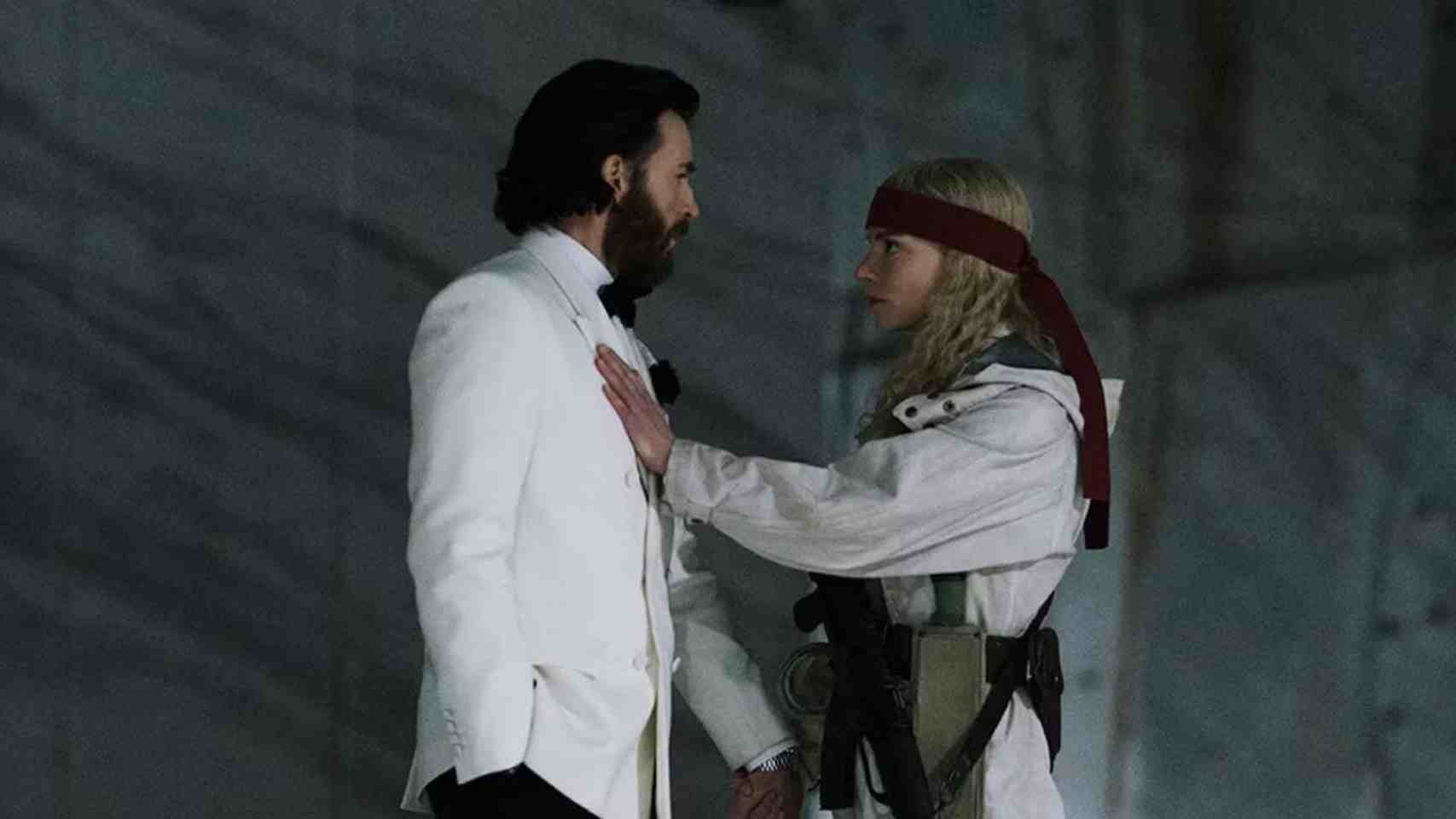Doesn't a Sacrifice usually have a point?
Romain Gavras attempts to critique a vapid culture's inability to confront a climate crisis, but serves a superficial satire.
Photo: Courtesy of Toronto International Film Festival
“The old way must burn to ash for the new way to be born,” declares Joan (Anya Taylor-Joy) as her mother’s funeral pyre illuminates the night sky. The violent overthrow of the old guard by a radical youth is the narrative interest of Sacrifice, the latest attempt at socially conscious critique from filmmaker Romain Gavras, son of legendary director Costa-Gavras. Departing from the action-heavy sensibility of Athena—his 2022 Netflix film co-written with Ladj Ly and Elias Belkeddar—Sacrifice sets its sights on satirizing celebrity culture and its disingenuous engagement with pervasive societal ills. Yet much like Athena, its political insights are insipid, relying on caricature rather than authentically engaging with the crises that plague our current times.
Co-written by Gavras alongside playwright (and occasional Succession scribe) Will Arbery, Sacrifice‘s predominant focus is on climate change, riffing on the activist efforts of the Earth Liberation Front and Greta Thunberg alike. In fact, Joan is effectively a stand-in for the Swedish face of the youth climate justice movement, sporting the same blunt, blonde bangs. The Swedish connection goes even deeper with Gavras’ unusual casting of Stockholm rapper Yung Lean, who plays Arthur, Joan’s incestuously obsessed younger brother. Under Joan’s charge, an organized militia plots to disrupt a star-studded gala hosted in a marble quarry on a remote Greek island, their aim being to save the world from imminent destruction. The group fervently insists that the only way to quell a nearby rumbling volcano—the eruption of which would cause a mass extinction event—is to take three high-profile hostages and feed them to the flaming magma. Ironically, the gala in question is filled with sanctimonious celebs who purport to care about the environment, but are gathered to celebrate the deep sea mining start-up Poseidon Alliance, which is headed by evil entrepreneur Ben Bracken (Vincent Cassel).
 Keep scrolling for more great stories.
Keep scrolling for more great stories.
